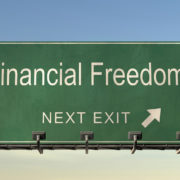THE LOSS OF ECONOMIC INDEPENDENCE AND YOUR FINANCIAL FUTURE
As appeared in the Jerusalem Post on 5/10/16:
The outrage on the right and “stimat piyot” (silencing those that disagree with you) goes against the very fundamental rule of freedom. “When the people fear the government there is tyranny, when the government fears the people there is liberty.”
– Thomas Jefferson
As we celebrate Independence Day, it’s important to be thankful for all that has been accomplished in these 68 years against insurmountable odds. A thriving economy, the only democracy in the Middle East and a general feelgood happiness and quality of life is certainly something to be proud of.
But what worries me the most, on this Independence Day, is the loss of individual freedom that we have been experiencing. While I don’t agree with what he said, Maj.-Gen. Yair Golan does have the freedom to speak.
The outrage on the right and “stimat piyot” (silencing those that disagree with you) goes against the very fundamental rule of freedom. On both sides of the political spectrum the move to silence dissenting viewpoints is bothersome.
It’s not just in the political arena, but our economic freedoms have been consistently eroded. What is economic freedom? According to the Fraser Institute’s Economic Freedom of the World, “the cornerstones of economic freedom are (1) personal choice, (2) voluntary exchange coordinated by markets, (3) freedom to enter and compete in markets and (4) protections of persons and their property.”
Israel has a long way to go on these areas. The size of the government keeps expanding as it enters areas that it has no business to be involved with in the first place. Regulation continues to handcuff economic entrepreneurship and growth. The thirst of our tax-happy politicians to spend more and more of our hard earned money is not good for economic progress today, and is a big obstacle to individual wealth creation over the longterm.
It’s incumbent on each and every one of us to take care of our own future. As the government continues its prohibitive tax policies on the one hand and then legislates that taxfree contributions to savings plans will no longer be taxfree above a certain level, it’s evident that the government doesn’t have our back. Don’t rely on the government for your financial independence.
You need to take care of your own financial future. No one else will do it for you. Here are 3 tips that can help you become financially independent.
Goal setting:
I am a firm believer that people need to set goals in order to achieve sought after milestones.
If you want to effectively lose weight, you set a goal of how much you want to lose. If you say to yourself that you want to ‘just lose weight’ without any goal of how much, you are primed to achieve minimal weight loss (if any at all). This is speaking from experience! It’s important to set a realistic date for when you’d like to be financially independent. As a guide for how much money you will need in the future, I like to tell clients that they need about 20 years worth of this year’s expense to make it. For example, if you spend $30,000 a year, you will need $600,000.
Now keep in mind that any pension, bituach leumi, or social security income that you will receive will lower the overall amount that you need.
If you receive $20,000 a year in retirement income, then you will need another $10,000 as supplemental income, which means you would only need around $250,000 in savings in order to be independent.
Slow and steady:
You need to make saving and investing a priority. Make a habit of ‘paying yourself first’ every month. Whether you invest in real estate (where you get a monthly rent check) or you invest in dividend paying stocks, focus on a slow and steady approach to building wealth. While it’s quite tempting to try and find a ‘homerun’ stock that will make you an instant fortune, far more often than not, investors end up striking out. When it comes to building assets, slow and steady rules the day.
Don’t wait:
Individuals often wait to begin investing because they think that their accounts are too small. They think that if they don’t have hundreds of thousands of dollars, there is no point investing. I recently met with a couple that has been married for a few years and between some savings and wedding money had accumulated $35,000. They took the money and stuck it into a savings account at their bank which is earning zero interest.
When I asked why they never invested the money, they said that they figured that it was such a small amount that it wasn’t worth it. They needed to get that money working for their future. The government isn’t the answer. Take control of your own financial future.
The information contained in this article reflects the opinion of the author and not necessarily the opinion of Portfolio Resources Group, Inc. or its affiliates.
Aaron Katsman is author of the book Retirement GPS: How to Navigate Your Way to A Secure Financial Future with Global Investing (McGraw- Hill), and is a licensed financial professional both in the United States and Israel, and helps people who open investment accounts in the United States. Securities are offered through Portfolio Resources Group, Inc. (www.prginc.net). Member FINRA, SIPC, MSRB, FSI. For more information, call (02) 624-0995 visit www.gpsinvestor.com or email aaron@lighthousecapital.co.il.




